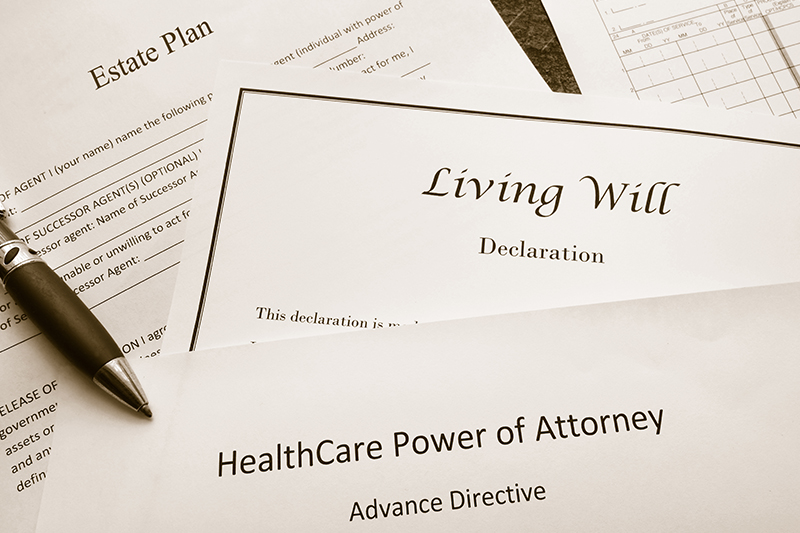For many families with a special needs child, a special needs trust is one of the most important components of the family’s overall estate plan. A properly designed and implemented special needs trust can provide a number of important benefits. Maximize quality of life while protecting eligibility for government assistance. A special needs trust allows you to provide funds that can help improve the quality of life for your special needs loved one without jeopardizing eligibility for necessary government assistance, such as Supplemental Security Income (SSI) and Medicaid. Funds in the trust can be used for all of the following and more: Medical procedures or therapies not available through government assistance Supplemental nursing home care and private companion services Travel expenses Entertainment expenses such as movies, concerts or electronic equipment Fees for guardians and attorneys Other expenses, services or products not provided by a government assistance program Lower costs for
Continue Reading... →Archive for the Blog Category
The Aid and Attendance Pension Benefit provides eligible veterans with tax-free pension income payments. This benefit also extends to surviving spouses of eligible wartime veterans. A married veteran can receive up to $2,903 per month to help with the cost of long-term care while a surviving spouse can receive nearly $1,176 per month. The benefit is paid directly to the veteran by the United States Treasury and does not need to be paid back. It can be used to pay anyone, including the veteran’s child, for home care. It can also be used to pay for professional care in the home, assisted living, nursing home care, insurance premiums, prescription drugs, co-pays, and more. In essence, Aid and Attendance can help an eligible veteran or widowed spouse live at home for as long as possible while still receiving the care he or she needs and protecting hard-earned assets. To be eligible
Continue Reading... →The Tax Cuts and Jobs Act, signed by President Trump on December 22, 2017, included provisions that doubled the estate tax exemption. The exemption for 2019 is $11.4 million for individuals and $22.8 million for married couples. According to the Tax Policy Center, less than 4,000 estates in the U.S. will have to file an estate tax return under the new laws, and of those only 1,800 (or fewer) will end up owing any money. Whether or not the federal estate tax is ultimately repealed is anybody’s guess at this point, but one thing is certain—all of us need an estate plan even if such a repeal comes to pass. That’s because minimizing estate taxes is not the sole purpose of estate planning, far from it. If a person passes away without a will or trust, his or her estate assets are distributed according to what is known as intestate
Continue Reading... →Are You Predisposed to Alzheimer’s Disease? What to Consider Before Taking A Genetic Test, Continued
It is important to note that if you take a genetic test and the results indicate you have APOE4, the genetic variant associated with late-onset Alzheimer’s disease, you are not destined to develop Alzheimer’s. “It’s not a diagnosis,” said Ramos, “And it’s just one factor. Your chance of getting late-onset Alzheimer’s is a mix of your environment, family history and DNA. That can be a complicated message to tease out.” Even if you have one copy of the APOE4 variant, you are still unlikely to develop Alzheimer’s. For example, a woman with a single copy of APOE4 has a five to seven percent chance of getting Alzheimer’s by the age of 75. The rate increases to between 27 and 30 percent by age 85. (However, for women with two copies of the variant the risk increases to 60 percent by age 85.) In addition, there are a number of potential
Continue Reading... →Here are several additional ways to prevent disputes over your estate. Consider putting a no contest clause in your will. If you suspect that one of your children, or his or her spouse, might make trouble over your will, a no contest clause can help avoid potential problems. In essence, this clause makes the risk of challenging your will outweigh the potential benefit of doing so. A no contest clause typically stipulates that if a beneficiary contests the will’s validity or its provisions, his or interest in the will is forfeited. Of course, you have to leave the heir in question enough of an inheritance to motivate him or her not to challenge the will. Prove that you are of sound mind. This might sound “crazy,” but it’s not. Challenges to wills often involve allegations that the maker of the will (the testator) was not of sound mind when the
Continue Reading... →It is now easy and relatively inexpensive for consumers to take tests that reveal basic information about their genetic health and ancestry. The market for such tests is booming, a trend that will likely continue following the U.S. Food and Drug Administration’s recent streamlining of the approval process for bringing tests to market. One of the more popular tests, 23andMe, costs $199 and can reveal a number of genetic predispositions. For example, you can discover if you are predisposed to lactose intolerance or a tendency to drink a lot of coffee. It can also tell you whether or not you have one of the genetic markers that increase your chance of developing Alzheimer’s disease. The popularity of 23andMe and similar tests is understandable. If you know you have a risk for certain medical conditions, you can take steps to try and prevent them. You can avoid specific foods, take the
Continue Reading... →In our last post, we looked at the problem of caregiver burnout and how to tell if you may be approaching burnout. Now let’s look at how to care for yourself and your loved one. First, you must understand that what you are feeling is not unusual. Caregiver burnout is much more common than you might think. This should come as no surprise given the number of Americans serving as caregivers and the amount of time and energy required to provide adequate care. Here are some steps you can take if you believe you might be suffering from caregiver burnout. Learn as much as you can about your loved one’s illness and how to care for it. The more you know, the more effective you’ll be and the better you’ll feel about your efforts. Recognize your limits. This involves taking a more realistic approach to how much time and effort
Continue Reading... →Another reason a will isn’t enough is that the ownership of many assets transfers outside the will, including life insurance, annuities, retirement accounts like IRAs and 401(k)s, jointly-owned property and more. The beneficiary designations of these assets, not the will, determine how they will be distributed. Many IRS rulings and court cases have concluded that the owner’s statements and intent in his or her will do not matter if they contradict what was written on the beneficiary designation form. This is why it is so important to review your beneficiary designations periodically to ensure they reflect your wishes now, not what you wanted when, for example, you opened the IRA 20 years ago. Many families utilize trusts in their estate plans. These provide a greater level of protection and flexibility than what a will alone can provide. For instance, a revocable living trust allows your estate to avoid probate entirely-and
Continue Reading... →According to a report issued by the National Alliance for Caregivers and AARP, approximately 40 million Americans provide unpaid care to another adult. What is more, providing adequate care to a spouse or partner requires, on average, over 44 hours per week. Sadly, caregivers often devote so much time and energy to caring for a loved one that they fail to take adequate care of themselves. This has become so common that there is a term for it, “caregiver burnout.” Caregiver burnout has been defined as a state of physical, emotional and mental exhaustion that may be accompanied by a change in attitude-from positive and caring to negative and unconcerned. Many caregivers even feel guilty if they spend time on themselves rather than on caring for their elderly or ill loved one. If you are serving as the caregiver in your family, you need to understand the difficulty of what
Continue Reading... →A will can help you accomplish a number of important planning goals. For instance, it allows you to control how your assets are distributed after you pass away. Without a will, your assets will be distributed according to what is known as intestate succession, in accordance with strict guidelines set by the state. What you “would have wanted” is irrelevant to the state. Your assets must be distributed, and the state has devised a formula to do so. A will also gives you control over how your minor children will be raised if something terrible happens to you and your spouse. Your will allows you to name people of your choosing-people you trust-to raise and care for your children if you cannot. Without a will, the court will decide who has control over your children. The court’s decision could lead to your children being raised in a place and manner
Continue Reading... →











